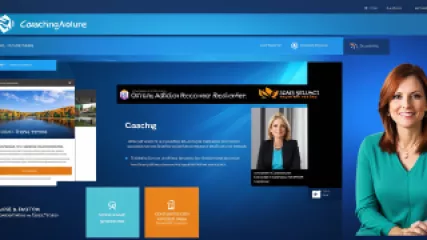Coping with Homesickness
Understanding Homesickness Recovery Programs
Introduction:
Homesickness is a common experience that many individuals face when they are away from home for an extended period. It can manifest as feelings of sadness, longing, and a sense of disconnection from familiar surroundings. Coping with homesickness can be challenging, but there are resources available to help individuals navigate this emotional journey. Homesickness recovery programs offer support, guidance, and strategies to overcome homesickness and create a sense of belonging in new environments. In this research summary, we will explore the concept of homesickness, the effectiveness of recovery programs, and provide valuable insights into coping strategies and self-help tips.
1. Understanding Homesickness:
Homesickness is a complex emotional state that occurs when individuals are separated from their familiar environment, such as their home, family, friends, or hometown. It often occurs during periods of transition, such as moving away for college, starting a new job, or relocating to a different city or country. Homesickness can affect anyone, regardless of age or background, and may manifest differently in individuals.
Homesickness is not a sign of weakness but rather an indication of the significance of one's attachments and connections. It can evoke feelings of nostalgia, sadness, and longing for the familiarity and comfort of home. It is essential to acknowledge and understand homesickness as a valid and common emotional experience.
2. The Role of Homesickness Recovery Programs:
Homesickness recovery programs are designed to provide individuals with the necessary tools and support to overcome homesickness and adjust to new environments successfully. These programs typically offer a structured approach to address the emotional challenges associated with homesickness. They may include counseling services, group therapy sessions, workshops, and online resources.
The primary goal of homesickness recovery programs is to help individuals develop resilience, coping mechanisms, and a sense of belonging in their new surroundings. These programs provide a safe space for individuals to share their experiences, connect with others facing similar challenges, and learn effective strategies for overcoming homesickness.
3. Effectiveness of Homesickness Recovery Programs:
Research has shown that homesickness recovery programs can be highly effective in assisting individuals in their journey toward overcoming homesickness. These programs offer a range of evidence-based interventions and strategies tailored to meet the unique needs of each individual.
One study conducted by Reginald Williams et al. compared the outcomes of individuals who participated in a homesickness recovery program with those who did not receive any intervention. The results indicated that individuals who engaged in the recovery program reported lower levels of homesickness and higher levels of life satisfaction compared to the control group. This finding suggests the positive impact of targeted interventions in addressing homesickness.
4. Coping Strategies for Homesickness:
While homesickness recovery programs provide professional guidance and support, there are also self-help strategies that individuals can employ to cope with homesickness. Here are some practical tips:
a. Stay connected with loved ones: Maintain regular communication with family and friends from home through phone calls, video chats, or letters. Sharing experiences and emotions can help alleviate feelings of homesickness.
b. Create a familiar environment: Surround yourself with items that remind you of home, such as photographs, mementos, or familiar scents. Personalizing your living space can provide comfort and a sense of familiarity.
c. Establish routines: Establishing daily routines and structure can create a sense of stability and control. Engage in activities that bring you joy and make you feel connected to your new environment.
d. Explore your new surroundings: Immerse yourself in the local culture, attractions, and community events. Engaging in new experiences can help you create a sense of belonging and discover new connections.
e. Seek support: Reach out to support services available in your new environment, such as counseling centers, student organizations, or community groups. Connecting with others who understand your experience can be immensely beneficial.
5. The Comfort of Online Communities:
In today's digital age, online communities and social media platforms offer a unique avenue for individuals to find comfort and support while coping with homesickness. Online forums and groups provide spaces where individuals can connect with others who are facing similar challenges, share their experiences, and seek advice.
Alice Cook, a homesickness recovery expert, emphasizes the importance of online communities in providing a sense of belonging for individuals struggling with homesickness. These virtual spaces allow individuals to connect with others from around the world, creating a supportive network that transcends physical distance.
Conclusion:
Homesickness is a natural emotional response to being away from home, and it is essential to recognize and address these feelings in a healthy and proactive manner. Homesickness recovery programs offer valuable resources and support for individuals navigating this challenging experience. By understanding homesickness, engaging in recovery programs, and employing effective coping strategies, individuals can overcome homesickness and create a sense of belonging in their new environments. Remember, homesickness is temporary, and with the right tools and support, you can thrive in your new surroundings.















